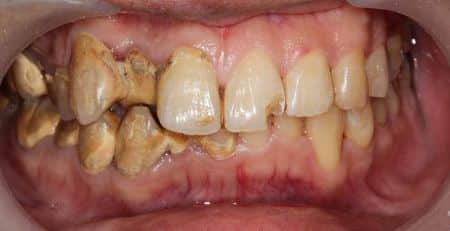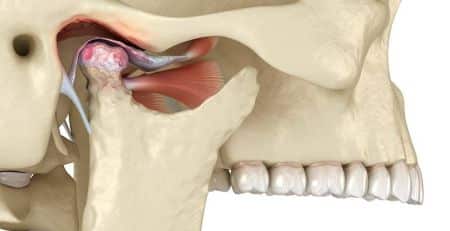Table of Contents
Oral health is increasingly recognised as a crucial aspect of overall well-being, with mounting evidence suggesting a significant link between the mouth and heart disease.
Bacteria are the fundamental cause of most oral health issues and gum diseases. Germs and bacteria enter the mouth through food, drinks, and other means.
If not removed through proper oral hygiene, these bacteria can accumulate over time and form dental plaque, leading to gum infections.
As these infections progress, bacteria can enter the bloodstream through minor wounds or sores in the mouth. Once in the bloodstream, certain types of bacteria can travel to the heart.
They can then attach themselves to the heart’s inner walls or valves, causing inflammation or direct infection of these areas. This process can lead to severe heart conditions, such as endocarditis, which is an inflammation of the inner lining of the heart chambers and valves.
Understanding the Link Between Dental Health and Cardiovascular Disease
The connection between oral health and cardiovascular disease (CVD) primarily revolves around the role of inflammation and the spread of bacteria from the mouth to other parts of the body, including the heart.
Oral conditions such as periodontitis (gum disease) can lead to bacteria entering the bloodstream, potentially causing atherosclerosis (hardening of the arteries), a significant risk factor for heart disease.
Who is Most Vulnerable?
Individuals suffering from chronic gum conditions like gingivitis or severe periodontal disease are at the most significant risk of developing heart disease linked to poor oral health, especially when these conditions are undiagnosed and untreated.
The bacteria from gum infections reside in the mouth and can enter the bloodstream, adhering to blood vessels and heightening the risk of cardiovascular issues.
Even without evident gum inflammation, poor oral hygiene and plaque accumulation can lead to gum disease.
These bacteria can also travel into your bloodstream and cause an increase in C-reactive protein, a marker for inflammation in blood vessels, potentially raising the risk of heart disease and stroke.
The Role of Inflammation
Inflammation is a common thread linking oral health and cardiovascular disease.
When periodontitis inflames the gums, the body’s immune response is activated, which can release inflammatory substances into the bloodstream.
These substances can contribute to forming arterial plaques, which are associated with atherosclerosis.
Over time, these plaques can narrow the arteries or even break loose, leading to heart attacks or strokes.
Oral Conditions and Cardiovascular Risk
Periodontitis
This advanced form of gum disease affects the bones that support the teeth and is the most significant oral health condition linked to cardiovascular disease.
The bacteria responsible for periodontitis can enter the bloodstream, leading to inflammation and damage to blood vessels.
Endocarditis
This infection of the inner lining of the heart chambers and valves (endocardium) typically occurs when bacteria or other germs from another part of your body, such as the mouth, spread through the bloodstream and attach to damaged areas in the heart.
Clinical Studies and Evidence
Numerous clinical studies have examined the intriguing link between oral and cardiovascular health.
These studies have sought to understand the mechanisms by which conditions affecting the mouth, particularly periodontal disease, may influence the risk of cardiovascular diseases, including coronary artery disease, heart attacks, and strokes.
Below, we delve into the specifics of this relationship, focusing on atherosclerosis and periodontal disease, the role of inflammatory markers, and the associated risks of heart attack and stroke.
Atherosclerosis and Periodontal Disease
Mechanisms of Impact
The connection between periodontal disease and atherosclerosis is rooted in the body’s response to the chronic infection and inflammation caused by the bacteria responsible for gum disease.
These bacteria don’t just stay in the mouth; they can enter the bloodstream through inflamed gums and travel to other body parts, including the arteries.
Clinical Evidence
Several longitudinal studies have tracked patients over time to observe the correlation between periodontal health and the development of atherosclerosis.
These studies have consistently found a higher incidence of coronary artery disease among those with periodontal disease.
For example, a landmark study published in the “Journal of Periodontology” demonstrated that individuals with periodontal disease had a significantly increased risk of developing coronary artery disease compared to those with healthy gums.
Pathophysiological Pathways
The pathogenesis of atherosclerosis involves the accumulation of lipids, calcium, and inflammatory cells within the arterial wall, forming plaques.
The inflammatory response triggered by periodontal bacteria can accelerate this process, leading to the hardening and narrowing of the arteries.
Inflammatory Markers
C-Reactive Protein (CRP)
CRP is a substance produced by the liver in response to inflammation.
High blood CRP levels are a reliable marker of systemic inflammation and are associated with an increased risk of cardiovascular diseases.
Periodontal disease, characterised by chronic gum inflammation, can elevate CRP levels.
Clinical Investigations
Numerous studies have explored the relationship between periodontal disease and CRP levels.
A systematic review and meta-analysis, integrating results from multiple studies, confirmed that individuals with periodontal disease tend to have higher CRP levels than those without gum disease. This suggests a systemic inflammatory response that could contribute to the development of cardiovascular conditions.
Heart Attack and Stroke Risk
Epidemiological Evidence
The evidence linking periodontal disease with an increased risk of heart attack and stroke is compelling.
Research studies have shown that the severity of periodontal disease correlates with the risk of cardiovascular events.
For instance, a study in the “American Heart Journal” found that patients with severe periodontal disease had a significantly higher risk of stroke and myocardial infarction compared to those with mild or no gum disease.
Potential Mechanisms
The mechanisms behind this increased risk are multifaceted.
They include the direct effects of circulating oral bacteria on the heart and blood vessels, the systemic inflammatory response, and the impact of periodontal bacteria on the clotting system.
These can potentially lead to thrombosis (blood clots), which can precipitate heart attacks and strokes.
Prevention and Management
Periodontal disease prevention through regular dental check-ups, proper oral hygiene, and lifestyle modifications can mitigate cardiovascular risk. This includes brushing and flossing daily and avoiding tobacco and excessive sugar consumption.
Gum Disease Symptoms and Warning Signs
Several warning signs indicate you might be suffering from gum disease, even in its initial stages:
- Red, swollen, and tender gums.
- Gums that bleed during eating, brushing, or flossing.
- Pus or other infection indicators around the gums and teeth.
- Gums that appear to be receding from the teeth.
- Persistent bad breath or a foul taste in your mouth.
- Teeth that are loose or seem to be shifting apart from other teeth.
Conclusion
The link between oral health and cardiovascular health underscores the importance of maintaining good oral hygiene to prevent dental problems and as a crucial aspect of protecting heart health.
As research continues to unfold, the interconnections between the mouth and the heart highlight the importance of a holistic approach to health that considers the body as an interconnected system.
References:
- “Periodontitis and Cardiovascular Disease: Consensus Report of the Joint EFP/AAP Workshop on Periodontitis and Systemic Diseases” by the European Federation of Periodontology and the American Academy of Periodontology.
- “Association between periodontal disease and atherosclerotic vascular disease: What is the current evidence?” by the American Heart Association.
- “The Influence of Periodontal Infections on Systemic Diseases” in the Dental Clinics of North America journal.
- “C-Reactive Protein and Other Markers of Inflammation in the Prediction of Cardiovascular Disease in Women”, published in the New England Journal of Medicine.
Disclaimer: The information in this blog is provided for educational and informational purposes only and is not intended to replace professional dental or medical advice, diagnosis, or treatment. Always consult your dentist, doctor, or other qualified healthcare provider regarding any concerns about your oral or overall health. Do not rely solely on the content presented here to make healthcare decisions, and never delay or disregard professional advice because of something you’ve read on this site. Amazing Smiles is not responsible for any outcomes resulting from using this information.





